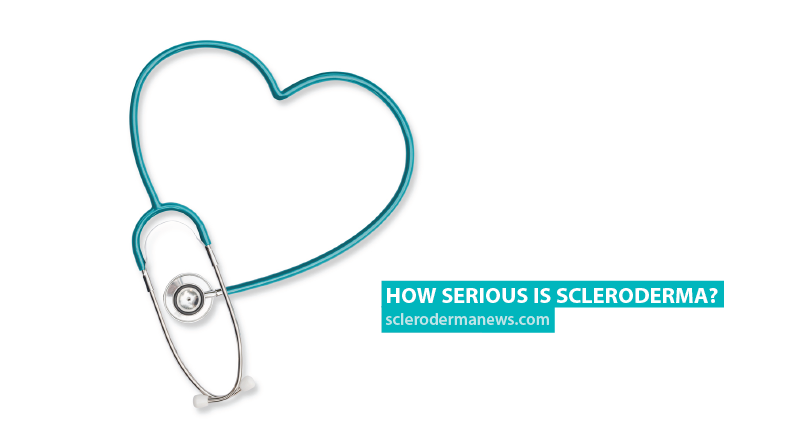How Serious is Scleroderma?
Written by |

Even though scleroderma affects around 2.5 million people worldwide including 300,000 people in the U.S., it’s a disease that few people know about. The rare autoimmune disease affects the skin and internal organs, but just how serious is it?
We’ve put together some information that explains how serious the disease can be, who it affects and how it’s treated using information from Scleroderma and Raynaud’s UK.
Symptoms
The symptoms of scleroderma vary greatly as it can affect many different parts of the body. Some have a mild form of the disease where only the skin is affected, while in other more severe cases, it can be a life-threatening condition where multiple organs are affected.
The most common symptom is the hardening of the skin due to an overproduction of collagen. This can lead to mobility issues, shrinkage of the mouth area, and losing the ability to use your hands. Many systemic scleroderma patients may also have problems with the heart, lungs, kidneys, liver and digestive system.
Find out more about scleroderma from diagnosis to symptoms.
Causes and Risks
There is no known cause of scleroderma. Women are four times more likely to develop the disease than men and it’s more likely to strike women during their childbearing years. Children can also develop scleroderma, though it tends to be a milder form of the disease that only affects the skin.
Familial scleroderma is rare, but there is evidence that the disease may be due to genetics. There’s nothing that suggests certain races are more prone to scleroderma or that where you live plays any factor.
Treatment
There is currently no cure for scleroderma. Treatment for scleroderma depends on the parts of the body affected and how severe the disease is. Typically, a scleroderma patient will need to see a variety of doctors specializing in various fields and may need to undergo surgical procedures. Patients can manage their symptoms through a combination of medication, physical therapies, diet and complementary medicines.
Find out how stem cell treatment works for scleroderma here.
Scleroderma News is strictly a news and information website about the disease. It does not provide medical advice, diagnosis or treatment. This content is not intended to be a substitute for professional medical advice, diagnosis, or treatment. Always seek the advice of your physician or other qualified health provider with any questions you may have regarding a medical condition. Never disregard professional medical advice or delay in seeking it because of something you have read on this website.





